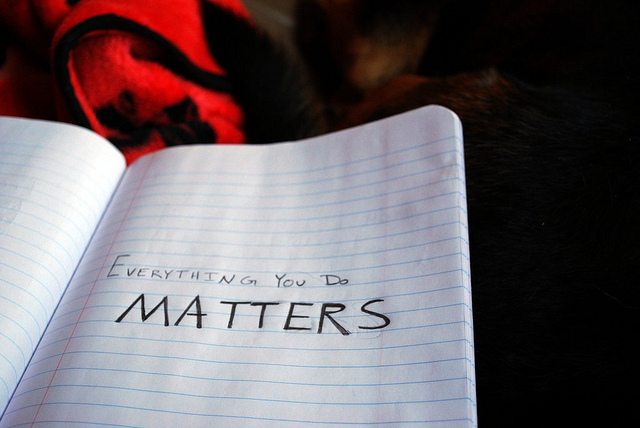According to a new 30 Hour Famine study, almost half (44 percent) of American teens say they’ve become more aware of the needs of others thanks to their social media usage. The survey commissioned by World Vision, a relief and development group, revealed that four out of five teens (80 percent) use social media and that two out of three (66 percent) agree that the benefits of social media outweigh the risks. 30 Hour Famine is the world’s largest teen hunger awareness campaign involving more than six million teens since 1992. More than 150,000 teens will take part in 30 Hour Famine later this month to address the Global Food Crisis and fight global hunger.
The study, conducted by Harris Interactive, also reveals that about one in three teens (34 percent) “friend”, “like” or “follow” charitable organizations or causes they believe in. Teenage girls are more likely than boys to say they’ve become more aware of the needs of others as a result of their use of social media (51 percent vs. 38 percent). The study was conducted online in January by Harris Interactive among more than 500 youth ages 13 to 17 years old. The study also found that girls are more likely than boys to “friend”, “like” or “follow” charities they support and causes they believe in (41 percent vs. 27 percent).
Michele Tvedt, World Vision’s 30 Hour Famine Manager says, “It’s rewarding to see that sites like Facebook and Twitter are making teens more aware of the needs of others. This just confirms what we’ve known all along – that young people really are eager to engage their world and use social media to make a difference.” Tvedt has personally done The Famine for 13 years, adding up to more than 390 hours over the years. Since 30 Hour Famine started in 1992, groups participating in Famine events have raised more than $140 million to fight global hunger.
On the weekend of April 29-30, teens nationwide will participate in World Vision’s 20th annual 30 Hour Famine, forsaking food for 30 hours to get a taste of what the world’s poorest children face. Prior to the event, teens raise funds by explaining that $1 can help feed and care for a child a day. So $1 for each hour they’ll fast, $30, can feed and care for a child for a whole month. As they fast, teens consume only water and juice as they participate in local community service projects (food banks, soup kitchens and homeless shelters). Part of the funds from this year’s 30 Hour Famine will go toward long-term relief in Haiti. Last year’s 30 Hour Famine raised $10.4 million with funds going to fight global hunger. This year’s fund-raising goal is $11 million.
Tonight, almost 1 billion people worldwide will go to bed hungry. 22,000 children die each day from hunger and preventable diseases. Chronic poverty, affecting half the people on earth, is the cause. Nearly 3 billion people live on less than $2 a day.
Where does 30 Hour Famine money go? Haiti, Ethiopia, Kenya, Somalia, Uganda, Sudan, South Sudan, Mauritania, Pakistan, Zambia, Zimbabwe and other targeted spots where famine, conflict and other crises make children vulnerable. Some 30 Hour Famine funds are also used to address poverty here in the U.S.. World Vision works in 100 countries, helping approximately 100 million people every year.
For info: www.30hourfamine.org or call 800-7-FAMINE
Or visit our facebook fan page at www.facebook.com/wv30HF





Great article. I do agree, but it’s one where we need to teach them balance between real life and internet life because it’s easy to become disconnected and care from afar.
This is an excellent point. Kids also need to learn how to interact in real life, and not just through digital/electronic means. The skills needed to have a successful, balanced, and God honoring life, are not all learned online.
that’s the great thing about what @WorldVision is doing with the @30hf movement… it’s based in practical acts of service. and it’s cool to see how social media is being leveraged to help them share the message…
in fact, i’m hoping to get a skype interview with a group participating in the 30 Hours of Famine on the 29th and 30th to share here.
It is cool to “see how social media is being leveraged to help them share the message”, indeed. I was getting at more of that disconnect you speak of in the comment below-perhaps doesn’t relate to this article in specific, but indeed an issue our young people are facing. I look forward to you sharing more on that book. I’d love to know the title.
the book is called #veneer. one part in it that hit me pretty hard is how people spend all this time online, but then walk away from the computer and still feel lonely because they never got face-to-face or physical contact with other people.
i don’t think that it means the technology is ‘bad’, but must be balanced appropriately with real-life activity (like @30HF).
I’ll be doing a review on the book, and interviewing the authors, maybe more… we’ll see. here’s a link to the book on amazon (looks like print isn’t out yet, but you may be able to get it now on kindle)…
http://www.amazon.com/gp/product/0310325633/ref=as_li_ss_tl?ie=UTF8&tag=fistbumpmedia-20&linkCode=as2&camp=217145&creative=399349&creativeASIN=0310325633
Cool! Thanks for sharing.
And, in response to your reaction, I just posted this commet on geekforhim about the very loneliness you’re speaking of:
Oh, yeah, the blogosphere/social media can easily take over my life if I’m not careful. As a SAHM, it’s hard for me because I crave interaction with the “outside world”, and sometimes that is at the expense of my kids. And, it’s also been at the expense of my real world relationships as well. I find that it takes a lot of mental and emotional energy for me to interact online. If I don’t conserve some of that for my family or my face to face interactions, I have nothing to give at the end of the day. Wondering if anyone else struggles with this???
i’m reading a really interesting book (partially) about the disconnect between real/online life, and that’s an important topic that i’ll be sharing more on here soon. but one of the things that i dig about what world vision is doing here is how they are leveraging that interest to fuel the movement…. and they’re not just doing it online… these activities for 30 Hours of Famine are using real action to engage the youth… pretty cool stuff!